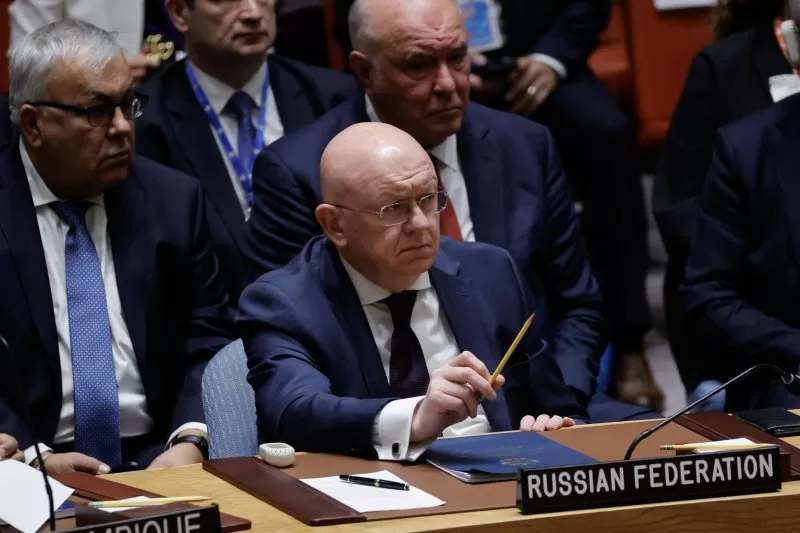May 21 (UPI) — The United Nations on Monday for the second time in nearly a month failed to adopt a first-of-its-kind resolution, this time Russian-backed, which aims to prevent a weapons race in outer space.
Voting in favor of Monday’s resolution: Algeria, Ecuador, China, Guyana, Mozambique, Russian and Sierra Leone. Voting against: France, Japan, Malta, Korea, Slovenia, Britain and the United States.
Nine votes were needed for it to pass. Switzerland was the one abstention.
Last month in April during a vote among the United Nations’ 15-member security council, Russia first vetoed a similar U.S.- and Japan-sponsored U.N. resolution which opposed the deployment of nuclear weapons in space that used similar language to the one shut down Tuesday.
While China abstained at the last vote, 13 member nations voted yes in favor of April’s similar resolution.
While introducing Monday’s resolution, the Russian representative invoked the April 24 vote by saying the west and other countries were attempting “to portray the Russian Federation in an unfavorable light” and “assign to us a certain plan of action which we do not have.”
Russia says it wants to provide other U.N. countries the opportunity “not in word, but in deed,” Russia’s United Nations representative Vasily Nebenzya said, to “demonstrate the peaceful nature of their intentions” unlike the “blatantly politicized” previous resolution by Japan and the United States.
“Today’s vote is a unique moment of truth for our Western colleagues,” he emphasized as he called the resolution’s draft “comprehensive” in nature and that it reflects the “interests and aspirations of an overwhelming majority” of UN members.
It comes as President Joe Biden days ago signed bipartisan legislation that bans the importation of Russian uranium amid the country’s war with Ukraine in a move which severs the United States from its dependency on the Kremlin-controlled resource, while cutting off the Putin regime from another key revenue source for its military conflicts.
U.S. Ambassador Robert Wood, the U.N.’s alternate representative for special political affairs, said Russia “seeks to distract global attention from its development of a new satellite carrying a nuclear device” in his remarks Monday, which he says they launched on May 16 into the same low Earth orbit as a U.S. government satellite.
The 1967 Outer Space Treaty seeks to prevent member countries, such as the United States and Russia, from putting any objects carrying nuclear or other weapons of mass destruction into Earth’s orbit. But Russia argues that their draft did cover those bases, which the U.S took issue with.
The White House in February confirmed Russia was developing “anti-satellite capability” but that it did not currently present an immediate threat. The Russian Federation launched a Soyuz-2.1b rocket on May 16 from the Plesetsk Cosmodrome in northern Russia, but the Russian government did not immediately disclose any details about the satellite or its mission.
“First, rather than enhance arms control, the Russian text put forward today would narrow the scope of efforts in other United Nations bodies in a way that would be detrimental to preventing an arms race in outer space,” Wood said.
